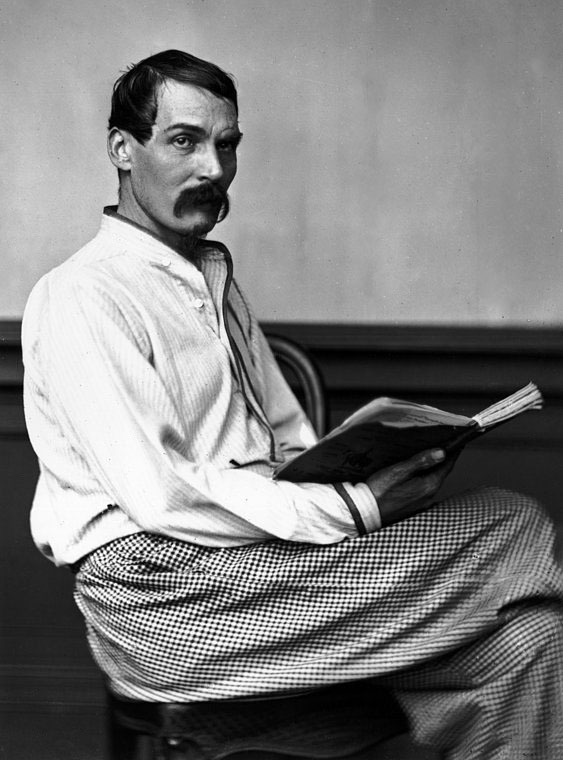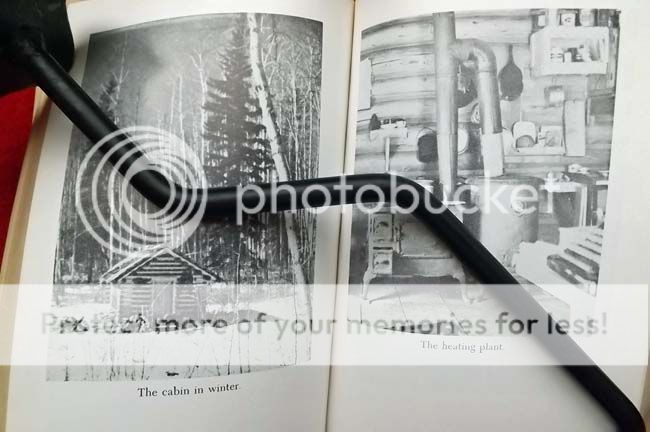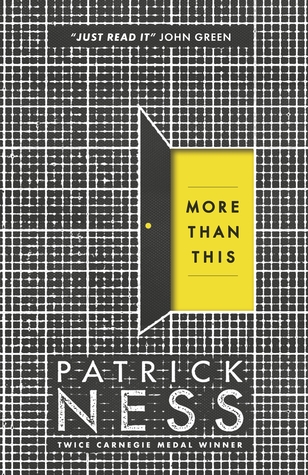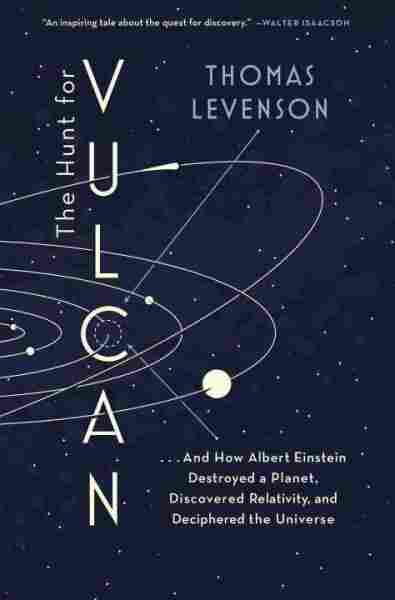-
The BladeForums.com 2024 Traditional Knife is available! Price is $250 ea (shipped within CONUS).
Order here: https://www.bladeforums.com/help/2024-traditional/
You are using an out of date browser. It may not display this or other websites correctly.
You should upgrade or use an alternative browser.
You should upgrade or use an alternative browser.
What are you reading?
- Thread starter MTURBO
- Start date
lol. no, i don't think its a romance. i think its more along the lines of familiar as in animal guide or something. its only vol 1 of a projected 27, I'm 200+ pages in and every chapter has introduced new characters and plots/subplot with no discernible main plot yet.
taldesta
Retired :-) Time is the Gold
- Joined
- Jan 24, 2013
- Messages
- 1,906
You might like So Disdained by Nevil Shute
First pub 1928
Takes place during the years between The Great War and WWII
Flying, spies, Europe and a regular guy that is caught up in it all.
Pub'ed in US under the dumb title The Mysterious Aviator
Thanks for the suggestion. Nevil Shute wrote, among many other novels, The Far Country. I've wanted to visit Australia ever since I read this one as a kid ... and that's a long, long time
Wowbagger
Gold Member
- Joined
- Sep 20, 2015
- Messages
- 8,055
THE CHEF knew that one.more along the lines of familiar as in animal guide
She says they some times help with spell work.
That must be why I had such a tough time in school spelling . . . I didn't have a Familiar.
Currently, The Book Of The Sword by Richard Burton. No, not THAT Richard Burton.... This was written in 1873 and it's a treatise on the development and evolution of that weapon.
It is at the same time tedious and interesting. Written smack in the Victorian era, by an Englishman, it is typical of academic writing of the time. Whole passages of untranslated Latin and Greek (you were supposed to know this stuff!)....Constant references to "barbarians", "savages", and typical Victorian white-guy superiority.
Burton is aghast at the suggestion that the Chinese might have developed steel production on their own... Must have taken it from the Egyptians, of course. (He admires the Egyptians...)
All of that sort of thing.....You have to understand the times.
Also, he's just tedious. He spends the first chapter explaining how the ideas for human weapons were obtained by observing the animal kingdom. That's fine....I could have done that in a couple of paragraphs. But not Burton... He spends two chapters cataloging every single biting, smiting, stinging, slashing animal in the world that he knew about....
But.... Interesting nonetheless. He's on the development of metal working and the ancient methods of producing steel right now, and although many contemporary sources indicate the secrets of "Wootz" steel-making have been lost, Burton describes the process in some detail...
So far, not a word about an actual sword... But I think I'm getting close.
It is at the same time tedious and interesting. Written smack in the Victorian era, by an Englishman, it is typical of academic writing of the time. Whole passages of untranslated Latin and Greek (you were supposed to know this stuff!)....Constant references to "barbarians", "savages", and typical Victorian white-guy superiority.
Burton is aghast at the suggestion that the Chinese might have developed steel production on their own... Must have taken it from the Egyptians, of course. (He admires the Egyptians...)
All of that sort of thing.....You have to understand the times.
Also, he's just tedious. He spends the first chapter explaining how the ideas for human weapons were obtained by observing the animal kingdom. That's fine....I could have done that in a couple of paragraphs. But not Burton... He spends two chapters cataloging every single biting, smiting, stinging, slashing animal in the world that he knew about....
But.... Interesting nonetheless. He's on the development of metal working and the ancient methods of producing steel right now, and although many contemporary sources indicate the secrets of "Wootz" steel-making have been lost, Burton describes the process in some detail...
So far, not a word about an actual sword... But I think I'm getting close.
silenthunterstudios
Slipjoint Addict
- Joined
- Feb 2, 2005
- Messages
- 20,039
The Revenant
- Joined
- Jan 11, 2006
- Messages
- 1,839
Currently, The Book Of The Sword by Richard Burton. No, not THAT Richard Burton.... This was written in 1873 and it's a treatise on the development and evolution of that weapon.
It is at the same time tedious and interesting. Written smack in the Victorian era, by an Englishman, it is typical of academic writing of the time. Whole passages of untranslated Latin and Greek (you were supposed to know this stuff!)....Constant references to "barbarians", "savages", and typical Victorian white-guy superiority.
Burton is aghast at the suggestion that the Chinese might have developed steel production on their own... Must have taken it from the Egyptians, of course. (He admires the Egyptians...)
All of that sort of thing.....You have to understand the times.
Also, he's just tedious. He spends the first chapter explaining how the ideas for human weapons were obtained by observing the animal kingdom. That's fine....I could have done that in a couple of paragraphs. But not Burton... He spends two chapters cataloging every single biting, smiting, stinging, slashing animal in the world that he knew about....
But.... Interesting nonetheless. He's on the development of metal working and the ancient methods of producing steel right now, and although many contemporary sources indicate the secrets of "Wootz" steel-making have been lost, Burton describes the process in some detail...
So far, not a word about an actual sword... But I think I'm getting close.
Richard Francis Burton's The Book of the Sword was projected as the three volume work, with volumes two and three covering medieval and modern (Victorian) times. Only volume one had been published when Burton died. Too bad! Burton was a skilled fencer with both European and Asian swords. Victorian archaeology has been superseded.
Burton was an interesting character, a polyglot linguist (26 languages) and a real-life Indiana Jones who made a pilgrimage to Mecca and Medina in 1853. The colored illustration depicts his assumed identity as Mirza Abdullah, a Pashtun-speaking Afghan pilgrim.

Burton's translation of The Book of a Thousand Nights and a Night in ten volumes with six supplemental volumes can be downloaded from Project Gutenberg. His footnotes are entertaining. His Personal Narrative of a Pilgrimage to Al-Madinah & Meccah and Two Trips to Gorilla Land and the Cataracts of the Congo are inexpensive Dover paperbacks (and they can also be downloaded from Project Gutenberg).
A fun off topic note. Polyglotism is not nearly as impressive as it sounds when you factor in mutually intelligible languages and the confusion created by the use of different scripts. There are 23 mutually intelligible languages just in the roman language tree alone. So learn two languages with many branches and two scripts that complement each other and you soon have an impressive number.
taldesta
Retired :-) Time is the Gold
- Joined
- Jan 24, 2013
- Messages
- 1,906
Recently, a thread about heading into the forest to live sent me back into my old and golden paperback, At Home in the Woods. Reading on BF often reminds me of passages from books written long ago. These seem to be the volumes I hang onto over time and reference for pure enjoyment.
In this one, Vena and Brad Angier decide to do the 'Thoreau' thing near Hudson Hope, BC. Some income came from writing about their experience. Their survival was much about hunting and gathering and mutually supportive but distant neighbours. Copyright 1951 by Bradford Angier. As with much writing of the time, there are lots of adjectives. Not a page turner, but it is inviting to curl up in an armchair and to spend quality time with this young couple in their wilderness. Lots of character and anecdote as well.
It was interesting how they chose their destination through researching the climate.
Thoreau's reasoning resonated deeply with these two.
"What people say you can not do, you try and find you can"
"The cost of a thing is the amount of life which is required to be exchanged for it."


The Angiers lived it.
In this one, Vena and Brad Angier decide to do the 'Thoreau' thing near Hudson Hope, BC. Some income came from writing about their experience. Their survival was much about hunting and gathering and mutually supportive but distant neighbours. Copyright 1951 by Bradford Angier. As with much writing of the time, there are lots of adjectives. Not a page turner, but it is inviting to curl up in an armchair and to spend quality time with this young couple in their wilderness. Lots of character and anecdote as well.
It was interesting how they chose their destination through researching the climate.
Thoreau's reasoning resonated deeply with these two.
"What people say you can not do, you try and find you can"
"The cost of a thing is the amount of life which is required to be exchanged for it."


The Angiers lived it.
- Joined
- Aug 15, 2015
- Messages
- 313
Just finished reading the many reviews of Shantaram on Amazon.
4.5 stars Looks like a good one!
Sorry for the much belated reply. Just discovered this thread.
Shantaram was an amazing read! And a refreshing reality take on India. My father has been there more than 50 times, me just a dozen or so.
- Joined
- Sep 10, 2014
- Messages
- 1,375
Susan,
I enjoyed that Angier book too. I passed it on and Wilderness Wife to an elderly friend of mine years ago.
Cate
I enjoyed that Angier book too. I passed it on and Wilderness Wife to an elderly friend of mine years ago.
Cate
- Joined
- Feb 22, 2013
- Messages
- 146
The Fiction. An impulse buy while cruising Portland's legendary Powell"s books. Not sure if I like it yet.

The non-fiction. Fascinating story of how Newton's explanation of gravity brought a new understanding of the workings of the universe, and the foibles than ensued as we worked to apply this newfound insight.


The non-fiction. Fascinating story of how Newton's explanation of gravity brought a new understanding of the workings of the universe, and the foibles than ensued as we worked to apply this newfound insight.

- Joined
- Feb 24, 2016
- Messages
- 11
Terry Pratchett's second to last Discworld novel, Snuff.
- Joined
- Jul 7, 2013
- Messages
- 2,807
Essential Ásatrú by Diana Paxson.




